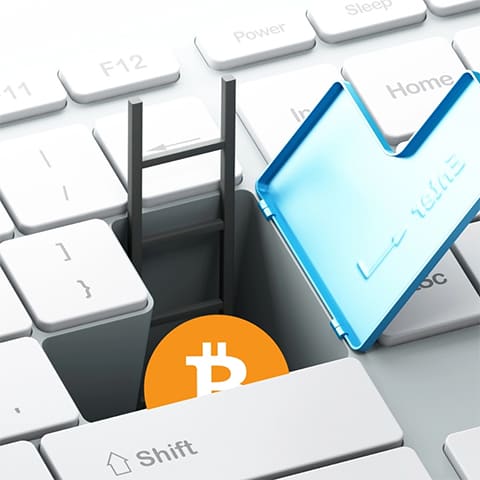Cryptocurrency Market in UAE
 The United Arab Emirates (UAE), known for its dynamic economy and technological advancements, has been making significant strides in embracing the world of cryptocurrencies. This article delves into the current state of the cryptocurrency market in the UAE, exploring regulatory developments, market trends, and the evolving landscape.
The United Arab Emirates (UAE), known for its dynamic economy and technological advancements, has been making significant strides in embracing the world of cryptocurrencies. This article delves into the current state of the cryptocurrency market in the UAE, exploring regulatory developments, market trends, and the evolving landscape.
In recent years, the UAE has shown a growing interest in regulating the cryptocurrency market. The Securities and Commodities Authority (SCA) and other regulatory bodies have been working to establish a framework for the legal use of cryptocurrencies. These efforts aim to balance innovation with investor protection and financial stability.
The UAE has introduced a new, compulsory regulatory market for the utilization of cryptocurrencies starting August 31st, 2023. All must now work as authorized - and fully regulated- entities by the emirate's virtual resources controller. In Abu Dhabi, the controller is the Abu Dhabi Worldwide Market (ADGM) which supervises the virtual resource space in Abu Dhabi. In Dubai, positioned more towards the e-commerce sector, the regulator is the Virtual Asset Regulatory Authority (VARA) which is responsible for managing and supervising virtual assets and virtual asset-related activities in all free zones in Dubai, besides at DIFC.
In Dubai, this change implies businesses engaged in crypto-assets need to show they have the credentials to conduct these operations. In the event that things go wrong, their clients are in a relatively good position to be properly redressed. What Dubai is attempting to avoid is the sort of blowouts crypto firms have had in business sectors where laws were inadequate or are still being outlined. From August 31, entities that qualify to meet the 'Full Market product' license can commence their progress to the VARA system.
Key Developments:
Licensing and Regulation: The SCA has been working on establishing licensing frameworks for cryptocurrency-related activities, including exchanges and other relevant services. This move is crucial for creating a secure and transparent environment for both businesses and investors.
Central Bank Digital Currency (CBDC): The Central Bank of the UAE has explored the possibility of issuing a central bank digital currency. This initiative aligns with global trends as several countries consider the potential benefits of CBDCs, such as improved efficiency in financial transactions.
Market Trends
Growing Interest: The UAE has witnessed a surge in interest in cryptocurrencies among both individual and institutional investors. The appeal of decentralized finance (DeFi) and the potential for blockchain technology to enhance various industries contribute to this growing curiosity.
Blockchain Integration: Beyond cryptocurrencies, the UAE has been actively exploring the integration of blockchain technology into various sectors, including healthcare, logistics, and real estate. This demonstrates a broader acceptance of the underlying technology that powers cryptocurrencies.
Challenges and Future Outlook
Regulatory Uncertainty: Despite progress, regulatory clarity remains a challenge. Investors and businesses often seek clear guidelines to navigate the cryptocurrency space with confidence. Continued collaboration between regulators and industry stakeholders will be crucial for fostering a robust and secure market.
Global Collaboration: The UAE's approach to cryptocurrencies reflects a broader trend of countries globally exploring digital currencies and blockchain. Ongoing international collaboration and information exchange will likely shape the future of the cryptocurrency landscape in the UAE.
Government Agencies Accepting Cryptocurrency in UAE
Government licensing organisation, Kiklabb, has started accepting cryptocurrencies for payments. The real estate sector encourages the usage of cryptocurrency by accepting Dogecoin as payment. A business management consultant, Virtuzone has also announced that they will be accepting bitcoin payments for their business set-up services.
 Future of Cryptocurrency in UAE
Future of Cryptocurrency in UAE
The Central Bank of UAE has reported that by 2026, they will launch their digital currency as a part of the 2023-2026 strategy. With this move, they are hoping to position themselves among the world's top 10 national banks. The cryptocurrency guidelines in Dubai are checked by FRSA (Financial Services Regulatory Authority), SCA (Securities and Commodities Authority), and DFSA (Dubai Financial Services Agency). A license from SCA or FRSA is expected to give crypto services in Dubai. The Dubai Financial Services Agency (DWTCA) and the UAE securities and Commodities Authority have made an arrangement to make the Dubai World Trade Centre a crypto zone and regulator for cryptocurrencies and other virtual assets. It will draw in new crypto prospects in Dubai and will add to a competent future for the UAE in the cryptocurrency industry.
 Conclusion
Conclusion
The cryptocurrency market in the UAE is at a pivotal juncture, balancing the need for innovation with regulatory safeguards. As the regulatory framework evolves and the market matures, the UAE's position in the global cryptocurrency landscape is likely to become more defined. Investors, businesses, and regulators will play pivotal roles in shaping the future trajectory of digital assets in this dynamic economic hub.
 English
English
 عربي
عربي Русский
Русский 官话
官话 português
português
 Türk
Türk 









